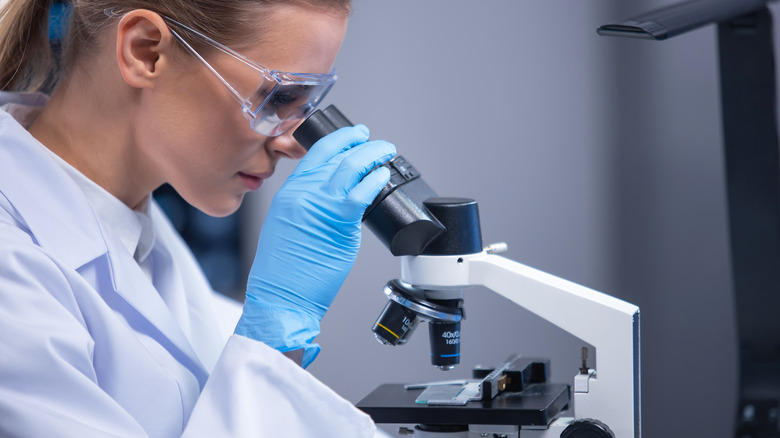What To Expect When Doing Genetic Testing
Genetic testing is a relative newcomer to the field of medicine. According to Chemical & Engineering News, the first DNA tests to be performed for forensic purposes were in the 1980s. Newborn screenings for genetic diseases like phenylketonuria (PKU) have only been around since the 1960s (via rarediseases.org). But the technology has advanced rapidly, and the price of genetic testing has dropped over the years. Today, genetic testing has become commonplace and easily accessible, with companies like 23andMe and Ancestry providing detailed information about genealogy and/or health in exchange for a little saliva and $99 (via 23andMe.com).
Often though, full-scale medical genetic testing is done for health, not genealogical reasons, and it works a little differently. Dr. Marni Falk, clinical geneticist, explains via Children's Hospital of Philadelphia, "Medical genetic testing is very different from the mail-order tests used to identify ancestral origins and risk factors for adult disease." She further explains that gene testing aimed at a diagnosis examines the entire genome searching for "unique mutations in particular genes relevant to their specific medical problems."
No matter the kind of test, though, you'll want to know the process and do some preparation first.
How to prepare for a genetic test
Most medical genetic tests are done by obtaining a blood sample, but they can also be done using saliva, skin, amniotic fluid, or other tissue. According to Mayo Clinic, once the sample is collected, it is sent to a lab to be analyzed for changes or mutations to genes that could cause illness or disease, including some mental illnesses. Genetic testing can provide information that can then be used to help diagnose, treat, or prevent illness.
The decision to get genetic testing done is a big one. If it's something you're considering, start by gathering as much information about your health and family medical history as possible. Then talk with your doctor or genetic counselor about whether they would recommend testing, about the cost (not all insurance plans cover genetic testing), and about what positive or negative test results could mean for you.
It's important to note that consumer genetic tests are limited in helping to provide diagnoses, as one 2019 report explains. A positive test result is not a guarantee that you will get the disease, and a negative test result is not a guarantee that you won't. Other factors, such as environment and lifestyle, also come into play. It's also important to consider the emotional and social impact the test results could have on yourself and your loved ones.


